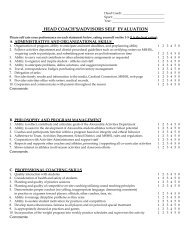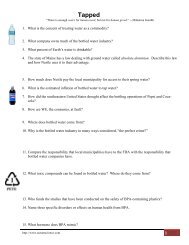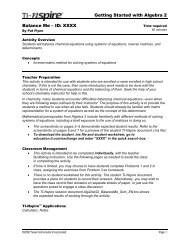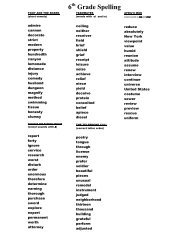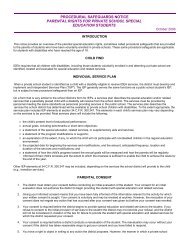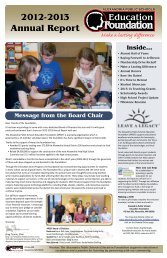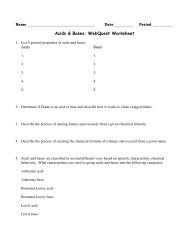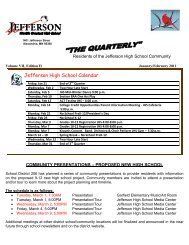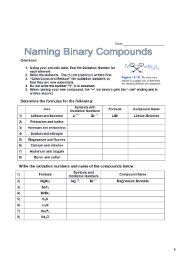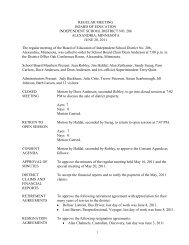Chapter 4 - Implementing a System of Research-based Interventions
Chapter 4 - Implementing a System of Research-based Interventions
Chapter 4 - Implementing a System of Research-based Interventions
You also want an ePaper? Increase the reach of your titles
YUMPU automatically turns print PDFs into web optimized ePapers that Google loves.
<strong>Chapter</strong> 4 <strong>Implementing</strong> a <strong>System</strong> <strong>of</strong> <strong>Research</strong>-Based <strong>Interventions</strong><br />
4. Gather background information that is not currently available in the student file<br />
and/or to check accuracy <strong>of</strong> existing information.<br />
a. Does (child’s name) have a nickname s/he prefers to be called? What is the<br />
name your child prefers to be called at home?<br />
b. What language does (child’s name) speak at home? What language is the<br />
primary language <strong>of</strong> the primary caregiver? Parent(s)?<br />
i. About how many hours a day is s/he hearing and using both the<br />
native language and English?<br />
ii. Did (child’s name) participate in pre-school or day care? Which<br />
language was the primary language used?<br />
c. Who is at home that might be able to help (child’s name) with learning<br />
things in (name the area <strong>of</strong> concern)?<br />
d. What previous school experience has the student had? If not specifically<br />
stated, ask: Preschool? Previous schools attended?<br />
e. Are you aware <strong>of</strong> any problems with (child’s name) vision and hearing?<br />
Have any outside evaluations been done in these areas <strong>of</strong> which the school<br />
may not be aware?<br />
f. Has (child’s name) been diagnosed with any illness or condition we should<br />
know about? If so, what can you share with us that is relevant to education?<br />
g. Does (child’s name) take any medications? If so, what are they?<br />
h. Has (child’s name) received any support services such as Title I or Special<br />
Education in the past? If so, what services and with what effect?<br />
5. How do you teach (child’s name) new tasks and skills? (This question is attempting<br />
to see what learning strategies the parents have tried and used successfully. This<br />
information may help guide the instructional interventions).<br />
6. What does (child’s name) tell you about school? (This question is attempting to see<br />
if the parent and student are aware <strong>of</strong> any difficulties or successes at school. This<br />
question may also open up communication between the parent and child about the<br />
area <strong>of</strong> concern).<br />
7. What do you know about how well (child’s name) is doing in school?<br />
8. Interviewer should explain areas <strong>of</strong> concern at this point if they have not already<br />
been explained to the parent. Then ask the parent: Have you seen any <strong>of</strong> these<br />
issues at home? If the parent has already expressed these concerns in response to<br />
question #3, do not ask this question.<br />
9. Do you have any concerns about (name the specific skill or behavior)?<br />
10. What do you think the school could do to help (child’s name)?<br />
11. Realizing the constraints <strong>of</strong> time and work, what activities are you or someone in<br />
the home doing to help your child with (name concern)?<br />
Minnesota Department <strong>of</strong> Education Draft 4-26



